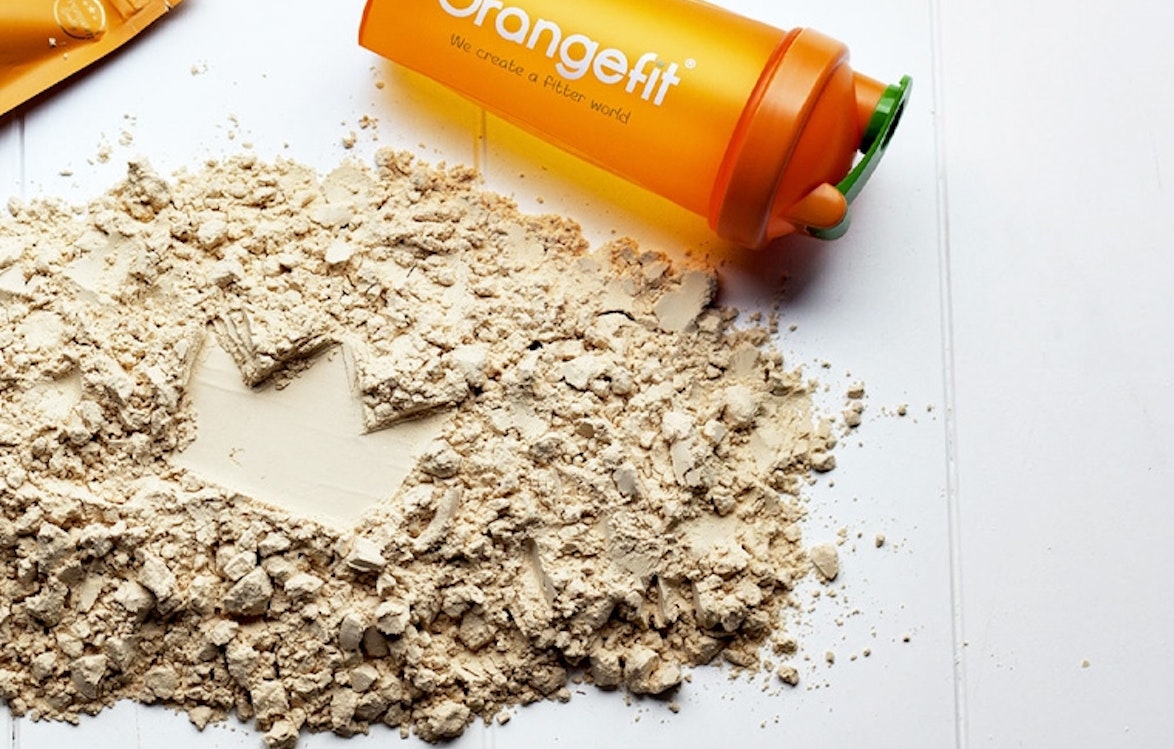Time to read : 5 min
What are proteins and why are they so important?
Proteins are essential for our body, not just for athletes and sportspeople, but for everyone as they are a crucial part of our daily nutrition. While many people know that they need to consume enough protein daily, they may not know why. What are proteins, and why are they so important? In this article, we'll outline some important facts about proteins for you.
What are proteins?
Protein, like carbohydrates and fats, is one of the macronutrients or nutrients that our body can use for energy. Although proteins can provide energy (4 kcal per gram) to the body, this task is mainly carried out by carbohydrates and fatty acids, and rarely by proteins. Proteins are primarily known as the building blocks of our body and muscles.
Proteins in the body
Our body consists of a large portion of proteins. However, the proteins in our food have a different composition than the proteins in our body, and therefore they are broken down into peptides in our stomach with the help of enzymes, and further broken down into amino acids in the small intestine.
These amino acids are then absorbed into the blood through the intestinal wall, where they are used for building all the proteins that our body needs.
You can think of it like a bead necklace, where all the beads are present but not in the correct order. Your body cuts the chain into pieces and then puts the beads in the right order.
Body proteins are constantly broken down and rebuilt in our body. This happens in our liver, intestines, and muscle tissue. About 70% of the amino acids from our food are used, and the rest is excreted or converted into energy.
What are proteins made of?
As mentioned before, proteins are made up of a series of amino acids. These amino acids consist of carbon, oxygen, nitrogen, and sometimes sulfur molecules. There are numerous forms of amino acids that occur in nature. This makes each protein unique, as there are many possible combinations.
Proteins in the human body can contain a total of 22 different types of amino acids that are linked together in various ways. The longer connections are called peptides and the short chains of amino acids are called polypeptides.
Of the 22 amino acids, our bodies can produce 14 of them. These are called non-essential amino acids, of which 3 are semi-essential.
This means that our bodies can usually produce these 3 amino acids on their own, but in some cases not enough (such as in illness or conditions). The other 8 are the so-called essential amino acids that we must obtain through our diet.
Sources of protein
Many of our daily foods contain protein. Animal sources of protein include: meat, fish, poultry, eggs, cheese, and dairy products. Plant-based sources include soy products, legumes (beans, lentils, chickpeas), grains, nuts, seeds, and mushrooms.
Many people still think that plant-based proteins are not "complete" and do not contain all essential amino acids. However, this is not correct, and the difference between animal and plant-based protein sources lies in the fact that plant-based proteins often contain all amino acids but in a different composition and quantity than animal proteins.
Protein Quality
Animal proteins contain a wide range of essential and non-essential amino acids, while plant proteins often contain fewer essential amino acids. For example, grains contain a lot of methionine and little lysine, while (most) legumes are the opposite.
A few exceptions to this are pea protein, hemp seed, quinoa, and products made from soybeans (soy yogurt, soy milk, tofu, and tempeh). These are complete plant protein sources that, like meat and dairy, contain a high amount of essential amino acids. [1,2]
But also (a combination of) legumes (beans, lentils), whole grains, nuts, seeds, various vegetables, and mushrooms are rich in protein and provide all essential amino acids.
The important thing is to get enough protein and provide your body with all essential amino acids. Whether these amino acids come from animal or plant products doesn't matter.
How much protein does your body need?
The optimal daily amount of protein varies greatly per person but is between 1.0 gram and 1.8 grams of protein per kg of body weight for most people.
When you eat mostly plant-based, it is recommended to slightly increase your protein intake because many plant protein sources often also contain other (healthy!) nutrients (including fiber) that make them slightly less digestible.
Especially if you do strength training, it is best to increase your protein intake to about 1.6-2.0 grams of protein per kg.
Conclusion
In this article, we described what proteins are and that the body itself builds the necessary proteins from amino acids.
To be able to build all the necessary proteins, there must be a good balance of amino acids in the body, and it is important that your body gets all amino acids through varied food.
People often think of animal products like meat, fish, eggs, and dairy when they think of proteins, while there are plenty of plant protein sources that not only provide all amino acids but also many other healthy nutrients and no saturated fats and cholesterol.
The myth that plant proteins are not 'complete' and do not contain all necessary amino acids is not true. Animal proteins are not better than plant proteins and is a myth that we unfortunately still hear too often.
Eating enough proteins from, for example, legumes, quinoa, nuts, whole grains, or a plant protein shake ensures that your body gets enough proteins and has all amino acids to build a strong body and good health!
